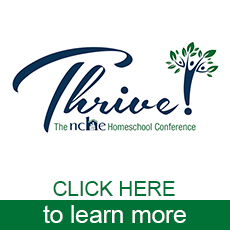
NCHE Announces Seven Scholarship Recipients for 2020
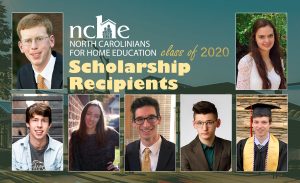 Since 1998, NCHE has awarded over $150,000 in college scholarships to over a hundred graduating homeschooled seniors. The NCHE Scholarship Program was instituted to encourage and reward excellence in homeschooling in North Carolina. Scholarship categories include:
Since 1998, NCHE has awarded over $150,000 in college scholarships to over a hundred graduating homeschooled seniors. The NCHE Scholarship Program was instituted to encourage and reward excellence in homeschooling in North Carolina. Scholarship categories include:
- academic
- arts
- community service
- scholar athlete, and
- missions and ministry*
This year, there were some truly amazing applicants! Although it was not easy for our committee to choose, after much prayer and consideration we selected the following students. On behalf of the scholarship judges on the NCHE Activities Committee, it is my privilege to inform our members of this year’s award recipients.
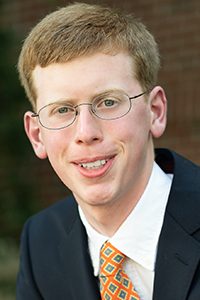 Apologia Missions & Ministry Scholarship: JOSIAH BRINSON of Holly Springs, son of Clifton and Christi Brinson. Josiah plans to study physics at Wake Forest University before going on to earn engineering degrees where he can use his creativity to invent and design. He is among the top 2% of under 21 chess players in the U.S.
Apologia Missions & Ministry Scholarship: JOSIAH BRINSON of Holly Springs, son of Clifton and Christi Brinson. Josiah plans to study physics at Wake Forest University before going on to earn engineering degrees where he can use his creativity to invent and design. He is among the top 2% of under 21 chess players in the U.S.
 Apologia Missions & Ministry Scholarship #2: WILLIAM SANDFORD of Burlington, son of Bill and Cheryl Sandford. William has been involved in the Civil Air Patrol for four years including serving as Squadron Commander; participated in four domestic missions trips and been a music/worship leader in his church for six years. He is on-track to receive his Associates degree from Alamance Community College this spring where he started and led a Bible study for approximately 25 students on campus. He plans to attend Liberty to major in Bible Studies and Music with the anticipation of entering the ministry upon graduation.
Apologia Missions & Ministry Scholarship #2: WILLIAM SANDFORD of Burlington, son of Bill and Cheryl Sandford. William has been involved in the Civil Air Patrol for four years including serving as Squadron Commander; participated in four domestic missions trips and been a music/worship leader in his church for six years. He is on-track to receive his Associates degree from Alamance Community College this spring where he started and led a Bible study for approximately 25 students on campus. He plans to attend Liberty to major in Bible Studies and Music with the anticipation of entering the ministry upon graduation.
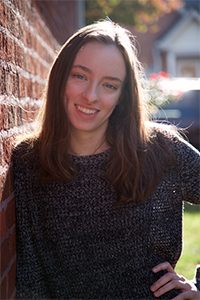 Arts Scholarship: ADAH FREEMAN of Kernersville, daughter of Karl and Mary Freeman. She has a 35 on her ACT. She plans to attend either UNC-Chapel Hill or NC State University in their bio/pre-med program. She has “a passion for biology, mental health, and any kind of art.” She “may become a doctor, a dermatologist, a Physician’s Assistant, an art therapist, or even a medical illustrator, but whatever I do will involve service, science, empathy, and creativity.”
Arts Scholarship: ADAH FREEMAN of Kernersville, daughter of Karl and Mary Freeman. She has a 35 on her ACT. She plans to attend either UNC-Chapel Hill or NC State University in their bio/pre-med program. She has “a passion for biology, mental health, and any kind of art.” She “may become a doctor, a dermatologist, a Physician’s Assistant, an art therapist, or even a medical illustrator, but whatever I do will involve service, science, empathy, and creativity.”
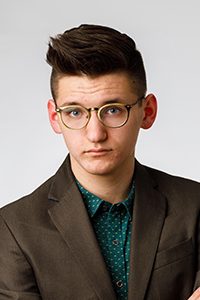 Molly Nichols Memorial Academic Scholarship: ELI MAYFIELD of Wake Forest, son of Jeffrey and Adrienne Mayfield. Eli, one of nine children, has a goal of becoming a nurse through the nursing program at UNC – Chapel Hill. Subsequently, he expects to go to grad school to become a nurse practitioner or PA. Eli has a 35 on his ACT, is nationally ranked in speech and debate through NCFCA, loves his family and loves the Lord.
Molly Nichols Memorial Academic Scholarship: ELI MAYFIELD of Wake Forest, son of Jeffrey and Adrienne Mayfield. Eli, one of nine children, has a goal of becoming a nurse through the nursing program at UNC – Chapel Hill. Subsequently, he expects to go to grad school to become a nurse practitioner or PA. Eli has a 35 on his ACT, is nationally ranked in speech and debate through NCFCA, loves his family and loves the Lord.
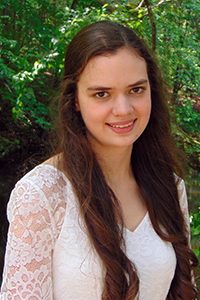 Community Service Scholarship #1: SOFIA LONNECKER of Knightdale, daughter of Gregory and Jacqueline Lonnecker. Sofia has served as an officer in her honor society, been active in her church, run cross country, worked with horses, and filled many positions in theater, including designing and making historically accurate costumes; see the link below. She wants to lead young girls through horsemanship.
Community Service Scholarship #1: SOFIA LONNECKER of Knightdale, daughter of Gregory and Jacqueline Lonnecker. Sofia has served as an officer in her honor society, been active in her church, run cross country, worked with horses, and filled many positions in theater, including designing and making historically accurate costumes; see the link below. She wants to lead young girls through horsemanship.
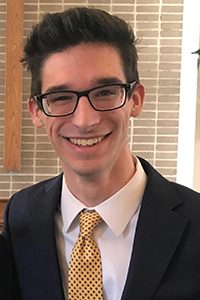 Community Service Scholarship #2: BEN McKAY of Youngsville, son of Trevor and Janet McKay. Ben is very well rounded and academically gifted. He has an ACT of 33 and will complete his AA degree via dual enrollment this spring. He has held leadership positions in his honor society and with NCFCA; earned the President’s Bronze Award (2 years) for community service and participates in guitar, voice, ballroom dance and musical theater. He plans to attend Grove City College to study Computer Science. Because of his breadth of interests and abilities, he doesn’t have a single career in mind but says, “I don’t need to see to know that the Lord sees. Whatever happens, I trust Him.”
Community Service Scholarship #2: BEN McKAY of Youngsville, son of Trevor and Janet McKay. Ben is very well rounded and academically gifted. He has an ACT of 33 and will complete his AA degree via dual enrollment this spring. He has held leadership positions in his honor society and with NCFCA; earned the President’s Bronze Award (2 years) for community service and participates in guitar, voice, ballroom dance and musical theater. He plans to attend Grove City College to study Computer Science. Because of his breadth of interests and abilities, he doesn’t have a single career in mind but says, “I don’t need to see to know that the Lord sees. Whatever happens, I trust Him.”
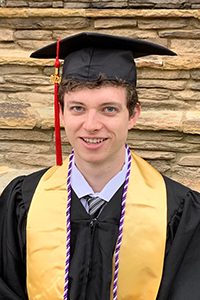 Scholar Athlete Scholarship: JACOB HUTH of Raleigh, son of Brandon and Cheryl Huth. In addition to high scholarship, he has a wide range of extracurriculars that include his church, trumpet, “for fun” classes (that weren’t on his transcript) in CPR, personal finance and auto repair among others. And then there’s his sport: fencing. He is nationally ranked as a competitor at the National Junior Olympics as well as serving as a fencing coach and referee. He plans to attend NC State University to study biomedical engineering, having been inspired by one of his fencing coaches who has a prosthetic leg following an accident.
Scholar Athlete Scholarship: JACOB HUTH of Raleigh, son of Brandon and Cheryl Huth. In addition to high scholarship, he has a wide range of extracurriculars that include his church, trumpet, “for fun” classes (that weren’t on his transcript) in CPR, personal finance and auto repair among others. And then there’s his sport: fencing. He is nationally ranked as a competitor at the National Junior Olympics as well as serving as a fencing coach and referee. He plans to attend NC State University to study biomedical engineering, having been inspired by one of his fencing coaches who has a prosthetic leg following an accident.
Scholarships are funded by supporters like you. If you would like to donate to this scholarship fund click here.
*The Missions & Ministry Scholarship is sponsored by Apologia.
Evelyn Bickley
Activities Director
North Carolinians for Home Education
Will More Parents Homeschool after Lockdown?
There is growing reason to believe that more parents will consider homeschooling after the lockdown. Here are a few indicators.
- A headline from a RealClear Opinion Research survey: National Poll: 40% of Families More Likely to Homeschool After Lockdowns End.
- An interesting article from CNN health explains: Why some kids are happier right now, and other unexpected effects of quarantine.
- Many of us are also hearing from parents directly, like these: Sentiments from Accidental Homeschooling Mamas.
Do you know any parents who are considering homeschooling?
If so, we’d like to help. We have created a free guide called Top Ten Questions Parents Ask Before Homeschooling.
Please share this page, where they can get the free download. Or you can share this video, which will also take them to the download page.
Bills in the NC General Assembly that Will Affect Homeschoolers

Photo by Scott Graham on Unsplash
There is a bill currently being considered by committees in both the NC House of Representatives (HB 1047) and Senate (SB 706) that includes language that would affect all homeschool families. The NCHE legislative committee has posted this statement about why we oppose the bill. The Home School Legal Defense Association has also published a statement opposing this bill.
What Does the Bill Do?
In summary, the bill would require homeschool families to provide a notice of intent to operate annually. We currently have to do this only once when we open our homeschools. We believe that changing this to an annual requirement would add an unnecessary burden to homeschool families that could cause them to be out of compliance and result in legal difficulties.
The bill would also require military families that homeschool to report that they have military connections on the proposed requirement to provide a notice of intent to operate annually. Again, we believe this requirement is unnecessary and could result in additional potential risk to the safety of military families.
What Can You Do?
The best thing to do at this time is to contact the representatives and senators who are on the committees that are considering these bills. Here are links to information about these committees:
House Committee: Homeland Security, Military, and Veteran Affairs
Senate Committee: Rules and Operations of the Senate
There is a convenient way to send an email to these committee members with wording provided in the right sidebar of the HSLDA statement.
Where Is the Bill in the Lawmaking Process?
According to NCPedia, the lawmaking process follows this procedure:
“Much of the work of the General Assembly is done by standing committees. These committees consider the bills introduced into the two houses, hold hearings, make such changes and amendments as they think necessary, and report their findings back to their respective chambers. If the report on the final version of the bill is favorable, it comes up for debate on the floor of the House or Senate. After final passage in one chamber, the bill is then sent to the other chamber, where the same events occur. A bill passed by both houses is then sent to the Governor, who may either veto the bill, or sign it into law.”
These bills are in the second phase, in which General Assembly standing committees are considering them.
What Is NCHE Doing?
The NCHE legislative committee is in communication with the bill’s sponsors, as well as our HSLDA representative. We will let you know how this bill progresses and if there is any other action that can be taken by homeschool families.
Our mission is to help parents homeschool with confidence and joy! One of the ways that we do that is by working to protect your rights to homeschool in North Carolina. Our main objective is for parents to have the freedom to homeschool in the way that they believe is best for their children. We do not support any legislation that would increase state regulation of homeschooling or that would put any unnecessary burdens on homeschool families.
– Matthew McDill, May 7, 2020
** You can read about how these bills were resolved in this post: What NCHE Is Doing to Keep NC Homeschool Friendly
Make Sure You Are Doing This with Your Teenagers
 by Mathew McDill, April 2020
by Mathew McDill, April 2020
I had a meeting with my oldest son yesterday. It was our weekly scheduled meeting.
He sat down and said, “Do you have anything to say?” I laughed because this was a strange way to start the conversation. I assumed that he was asking because he didn’t have any particular educational or life topics to bring up and we were headed toward a short meeting. Boy was I wrong!
“If you don’t, I have something I want to talk with you about.”
Then my son, who is normally short on words and personal interaction, unloaded some very heavy topics he was dealing with. He is facing some serious interpersonal, moral, and worldview challenges at work. Normal life stuff. Stuff we all have to deal with eventually. I am so glad he is dealing with it while he is still at home. Most importantly, I am glad that he is willing to talk with me about it. He shared the raw details. He shared his thoughts and struggles. He was open to advice and direction.
I am convinced that if we did not have this scheduled appointment, that this conversation may not have happened. Many conversations like this come up in unplanned conversations with my kids. But I have a lot of kids, so private, unplanned conversations are rare.
I have made it a priority to have closed door, one-on-one conversations with my kids, especially the older ones. Making it a priority means putting it on the calendar. There have been times that I knew I needed to have these private conversations with my kids, and I determined to keep a look out for the opportunities to come along. Some did, but not enough. Not nearly enough.
So now I have scheduled, weekly, one-on-one meetings with each of my teens.
Maybe a scheduled meeting wouldn’t go over so well with your teen right now. Here’s a great way to start: take them out for lunch, coffee, or dessert. Be prepared with questions. Have a good time. And listen. Ask more questions and keep listening. Don’t offer unsolicited advice. Listen. This will be a solid start toward the kind of relationship you’d like to have.
If you have any questions or tips for parenting teens, leave them in the comments below.
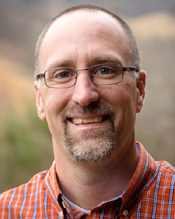 Matthew McDill and his wife, Dana, live in Clemmons, NC, with six of their nine children. Matthew has been in pastoral ministry for over twenty-five years and is now the executive director for North Carolinians for Home Education. He earned his M.Div. and Ph.D. at Southeastern Baptist Theological Seminary and authored the book Loving God: A Practical Handbook for Discipleship. Matthew loves to teach from God’s Word, especially on topics related to family relationships, discipleship, parenting and home education.
Matthew McDill and his wife, Dana, live in Clemmons, NC, with six of their nine children. Matthew has been in pastoral ministry for over twenty-five years and is now the executive director for North Carolinians for Home Education. He earned his M.Div. and Ph.D. at Southeastern Baptist Theological Seminary and authored the book Loving God: A Practical Handbook for Discipleship. Matthew loves to teach from God’s Word, especially on topics related to family relationships, discipleship, parenting and home education.
The War on Home Education

Photo by Daiga Ellaby on Unsplash
In the May-June issue of Harvard Magazine, there appears an article titled “The Risks of Homeschooling.” The author, Erin O’ Donnell, reports on a paper by Harvard professor Elizabeth Bartholet that recommends that homeschooling should be banned. The rational is that “homeschooling . . . not only violates children’s right to a ‘meaningful education’ and their right to be protected from potential child abuse, but may keep them from contributing positively to a democratic society.”
Bartholet appears to have four primary arguments:
- Since homeschooling is generally unregulated in the U.S. (and largely regulations are unenforced where there are any), “people can homeschool who’ve never gone to school themselves, who don’t read or write themselves.”
- Since homeschool children are isolated, then teachers cannot observe and report when there is abuse at home.
- A majority of homeschool families “(by some estimates, up to 90 percent) are driven by conservative Christian beliefs, and seek to remove their children from mainstream culture. Bartholet notes that some of these parents are ‘extreme religious ideologues’ who question science and promote female subservience and white supremacy.”
- “She views the absence of regulations ensuring that homeschooled children receive a meaningful education equivalent to that required in public schools as a threat to U.S. democracy.”
Almost immediately, a flurry of articles were written in response that criticized Bartholet’s ideas.
- Harvard Law Professor Attacks Homeschoolers, as She Envisions Them by Michael Farris
- Harvard Law School Calls for Ban on Homeschooling; Homeschooled Harvard Graduate On Why This is Wrong by Melba Pearson
- Harvard Professor Makes The Case For Homeschool Ban. Here’s Everything Wrong With Her Argument by Matt Walsh
- Homeschooling in the Crosshairs—Harvard Magazine Says Homeschooling Families Are a Threat to Democracy by Albert Mohler
- Harvard Law Prof Wants to Ban Homeschooling by John Stonestreet and Shane Morris.
You will find in these some excellent responses to the flawed reasoning and lack of evidence that supports this argument. The research that contradicts Bartholet’s understanding of the success and safety of home education have already been amply provided. I would like to focus on what I believe to be the most important, underlying worldview principle behind this line of thinking.
The Heart of the Issue
I was not surprised that this article was written. In fact, I have been surprised and grateful for how much freedom parents have enjoyed in the US, and in particular in North Carolina, to homeschool their children. I have been expecting a much more overt, ideological argument against homeschooling like this one to emerge. It reflects the seemingly ever increasing worldview chasm in our culture. One aspect of that worldview difference is not even about home education, it is about parental rights and the role of government.
That parental rights and the role of government are at the heart of the issue is revealed in statements like these from the Harvard Magazine article:
- “From the beginning of compulsory education in this country, we have thought of the government as having some right to educate children so that they become active, productive participants in the larger society.”
- “A central tenet of this lobby [HSLDA] is that parents have absolute rights that prevent the state from intervening to try to safeguard the child’s right to education and protection.
- “The issue is, do we think that parents should have 24/7, essentially authoritarian control over their children from ages zero to 18? I think that’s dangerous.”
Bartholet’s view is that the government has a right to educate children, that HSLDA doesn’t want the government to help protect children, and that parents who homeschool have dangerous authoritarian control over their children. A brief response: You will find no such governmental right in the constitution; HSLDA would never stand in the way of the government truly protecting children; and this caricature of homeschool parenting is an irresponsible, unsubstantiated generalization.
North Carolinians for Home Education holds that parents have a right and responsibility to raise their children according to their own convictions and choose whatever form of education they believe to be best for their children. Parents do not have the right to abuse their children, and the government has a responsibility to protect abused children.
We help parents homeschool with confidence and joy by protecting their rights to homeschool in North Carolina. There is currently no legislation being considered that would restrict that right. The battle we must be aware of and fight today is ideological, knowing that the attack against home education will make its way to the legislature. Bartholet makes this intent clear as she “recommends a presumptive ban on the practice” of home education.
[If you are not a member of North Carolinians for Home Education, please consider becoming one or making a donation. We are a non-profit organization that has been working to make home education free in North Carolina for over 35 years.]
– Matthew McDill, April 24, 2020
The One Sentence That Alleviates Mom Guilt
 You never taught your kids Latin. How will they ever make a decent SAT score without Latin?!
You never taught your kids Latin. How will they ever make a decent SAT score without Latin?!
You let little Mary quit piano. If only you’d encouraged her to keep practicing.
Sam is old enough to drive, but he still can’t identify a single tree in the yard. Well… maybe he could identify a pine, but don’t ask him if it’s a loblolly or a longleaf! Your husband was right: you should have joined scouts.
Mom guilt: it’s real—and moms aren’t the only ones who carry it. From never quite getting around to teaching basic car mechanics to forgetting to teach the gentle art of opening doors, plenty of dads carry guilt, too.
Are you ready to kiss that mom guilt goodbye? Here is the one sentence that you need to let it go.
“I am doing the best I can, and that is enough.”
There will be holes in education no matter where our kids go to school, no matter who their teachers are, and no matter which curricula you use (or avoid!) By letting go of guilt over all the things we could be doing, which are almost always very good things, we are freed to enjoy time with our children today—which is the best thing of all.
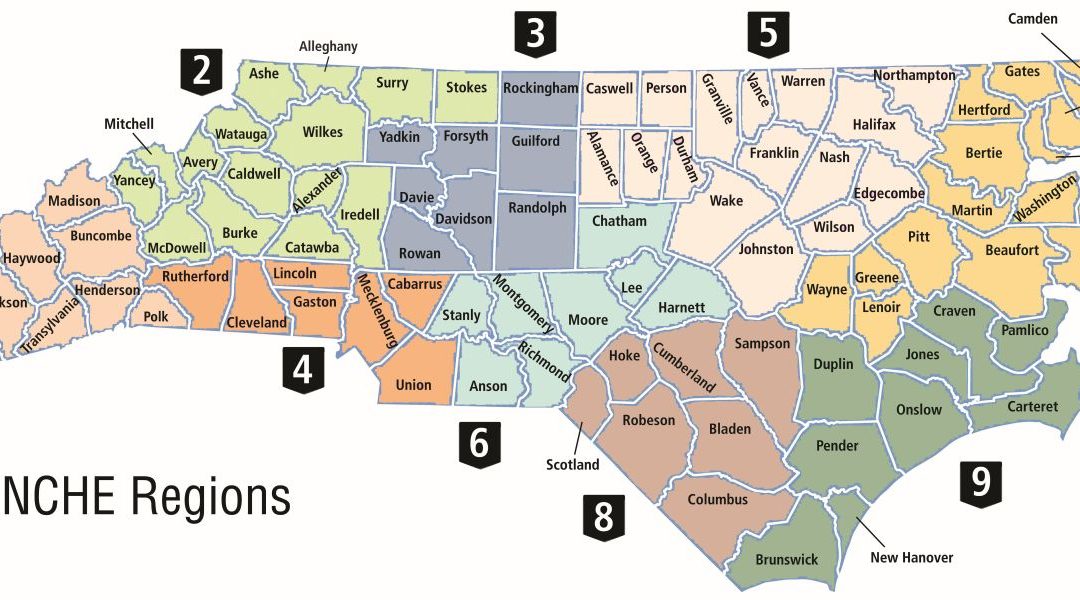
Are You Looking for a Homeschool Group in North Carolina?
You have decided to homeschool in a time when we have more opportunities than ever before—both in the number of groups and diversity of groups devoted to helping home educators.
Homeschool support groups, co-ops, and associations are primarily comprised of like-minded volunteers who choose to discover or reinforce portions of their learning through connecting with others. Homeschool groups express a wide range of organizational preferences, attitudes, and practices, which means there is definitely a tribe for you!
North Carolinians for Home Education (NCHE) has created web pages that list homeschool groups by region so that you can find one in your area. Check out our state map to see which region your county is in. Then visit your regional page to discover the groups near you.
In order to support homeschool families and groups in each region, NCHE also provides Regional Liaisons. You can email your Regional Liaison to find out about the resources and connections you need to homeschool with confidence and joy.
Learn More about Homeschool Groups in Your Area
How to Make a Unit Study
 Unit studies are a great way to learn, especially for topics that you want to explore in greater depth or from different points of view. Fantastic unit studies are easy to find for popular classics, but what if the subject you want to study is obscure—like the Icelandic Commonwealth during the late Middle Ages? If you can’t find exactly what you’re looking for, it might be time to make your own unit study!
Unit studies are a great way to learn, especially for topics that you want to explore in greater depth or from different points of view. Fantastic unit studies are easy to find for popular classics, but what if the subject you want to study is obscure—like the Icelandic Commonwealth during the late Middle Ages? If you can’t find exactly what you’re looking for, it might be time to make your own unit study!
Step 1: Explore Your Resources
Traditionally, the first resources we seek are books. With obscure topics, many of the books you find may only be available as an e-book or a .pdf that you can download or read on an electronic device. Many colleges have online journals filled with research studies or dissertations from their professors. Projects like sewing costumes, building models, or visiting universities and museum collections that showcase your subject are also great ways to enrich your study.
Step 2: Consider Your Audience
Some students will slowly and methodically think on one resource at a time, finish it, and then move on to the next resource. Some will bounce between multiple resources as their interests lead them. Some children are self-motivated and easily pace themselves, while others will need you to help them make a study plan. Consider your child’s personality when making your plan. The best plan is the one your child is going to enjoy doing, so be realistic!
Step 3: Make Your Plan
Some families make lesson plans using increments of time (like 1 study per month) as the frame of their unit study. They do as much as they can for 4 weeks, and then they move on to a new unit study.
Another approach is to make a unit study from a single piece of literature. The parent will pull out vocabulary words for their children to learn while they are reading, portions to diagram or copy for handwriting, and themes to discuss. For social studies and history, their family will learn about customs, traditions, and the period in history when the book took place. For older kids, you may easily supplement by choosing a greater volume of work, extra resources, or work of a greater difficulty.
For more ideas on unit studies, follow NCHE on Pinterest at nche1984.
Are My Children Really Learning Anything?
 What’s the point of a great education if your children can’t seem to remember most of it?
What’s the point of a great education if your children can’t seem to remember most of it?
Tell me I’m not the only one.
You spend hours crafting the Ultimate Book List.
You incorporate hands-on-projects.
You basically make learning awesome and fun.
And a few years (or maybe even months or – worse – weeks) later, your children don’t seem to remember any of it.
It’s tempting to get a little grumpy about the perceived waste of time and effort.
I’ve been thinking about this phenomenon a lot recently while planning book lists and setting course goals for my high school students.
I am a second-generation North Carolina homeschooler, and I think this perspective gives me unique insight. You see, my parents gave me an amazing education. It was rich in language and great books and original sources and philosophy and discussion and hands-on practicality and fun and adventures… and did I mention the hundreds of books? But there are so many details I can’t remember (what exactly was Adam Smith’s main point in Wealth of Nations? and which constitutional amendment says what?)!
So was all that education a waste if I can’t remember the details? Was all that reading a waste if I can’t even remember all the main points, let alone the details? If education is merely the accumulation of knowledge, does my forgetfulness over the course of decades mean my education has failed?
What is the point of providing a true, good, and beautiful education if our children may not even be able to remember most of it?
You could ask a similar question about sermons. How many of us can remember details (or even the key points) of sermons from 6 months or 5 years ago? Does it then follow that they are a waste of our time? No! For the grace of God is at work transforming our hearts through those simple words each week. We may not be able to list out or measure what we’ve heard in the past, but we see the results in who we are today.
Thus it is with the education we receive and give.
These days, I may not be able to debate with you the finer points of Augustine’s City of God, Aristotle’s On Rhetoric, or Schaeffer’s The God Who is There, but those works and others were part of the incredible process God graciously used to form the human I am today.
I don’t know now (and certainly didn’t fully recognize even in the past) each stroke of the chisel, each swipe of the sandpaper over my character. But those millions of words shaped and nourished the way I think and what I love. The experience of being challenged by the things I learned gave me a passion for continuing to learn and question and grow that remains today.
This gives me great hope and renewed enthusiasm as I direct my own children’s education. My goal is not for them to indefinitely remember lists of facts. It’s not for them to pass reading comprehension tests. I don’t have to despair if my kids don’t remember the cool projects we did during history lessons 5 years ago.
We can trust the process. We can trust that God is at work. We can trust that the “little drops of water, little grains of sand” are forming our children. They’re learning not what to think, but how to think.
Education is repentance. Education, pursued well, leads to humility and doxology. Education must not ever be reduced to merely filling our minds with information.
So, let’s keep crafting epic book lists for our family read-alouds and read-alones. Let’s keep having deep conversations in addition to random discussions about the little things that make up daily life. Let’s keep reading the Bible and memorizing beautiful words and worshiping God and praying alongside our families.
And we can stand still and watch the beautiful work God continues to do in all of us, for His glory and our good.
Amy Sloan is a second-generation homeschooler by grace alone to five children ages 5 to 15. The Sloan family adventures in Holly Springs, NC. Follow @HumilityandDoxology on Instagram, Facebook, YouTube, and at HumilityandDoxology.com
NCHE Responds to the Harvard Summit

Photo by Danielle MacInnes on Unsplash
Many of you have already read about the Harvard Summit that will discuss regulating home education. This is a disturbing development as we observe a growing agenda by some to increase government oversight of home education. I wanted to take a moment to provide a response from North Carolinians for Home Education.
NCHE supports parents’ rights to raise their children without government oversight.
The lives and well-being of children are precious. Therefore, national and state laws against abuse and other crimes must be enforced in all American homes. At the same time, parents should be free to raise their children by making their own religious, educational, and medical choices. This, of course, includes the right for parents to homeschool their children in whatever way they see fit.
The homeschool law in NC is one of the best in the nation, which is why our state is such a great place to homeschool. We believe that any additional oversight of home education by the government would be a compromise of parental rights and the quality of home education.
NCHE is working to protect your right to homeschool in North Carolina.
Our mission is to help parents homeschool with confidence and joy. We do this by protecting your right to homeschool in NC, equipping you with the information and encouragement you need, and connecting you with other families and groups across the state.
Currently, there is no specific threat in NC regarding our freedom to homeschool. Our law and policy director and committee are keeping an eye on any NC legislation that would affect homeschooling in NC. We regularly stay in touch with NC legislators to maintain a good relationship with them and make sure they remain aware of our community. Every other year we host Capital Fest in Raleigh, which allows homeschool families to be informed and engaged in our state government.
You can help.
You can help keep home education free in NC by partnering with us. You can become a member of NCHE (or extend your membership) by making a donation of any amount (min. $5). If you become a member, then you will receive our weekly email, which will keep you informed of homeschool opportunities and concerns in NC. We will be sure to let you know if it becomes necessary for you to take action.
In addition, your donation allows us to continue to work to protect our right to homeschool in NC. If you are already a member and would like to make an additional donation, you can do so here. Our next Capital Fest will be next spring (2021), so keep a look out for that information so you can join us in Raleigh to represent home education in NC!
If you have any comments or questions, please leave a comment below or contact me directly at matthew.mcdill@nche.com. Let us know how we can serve you!
– Matthew McDill, March 27, 2020

